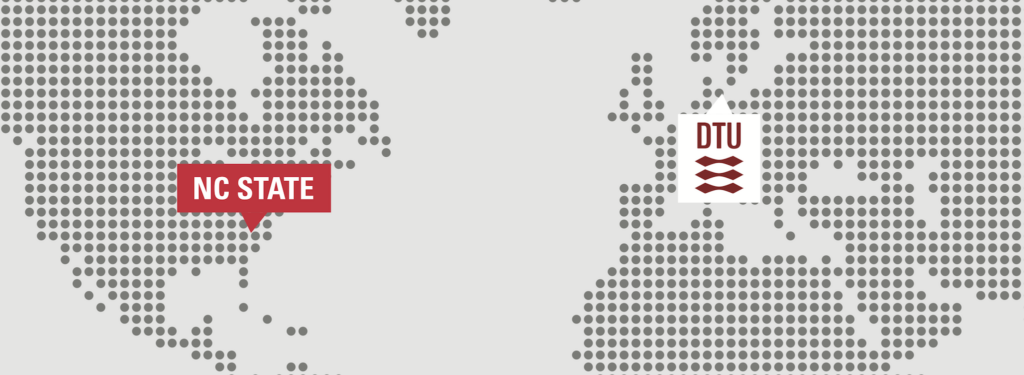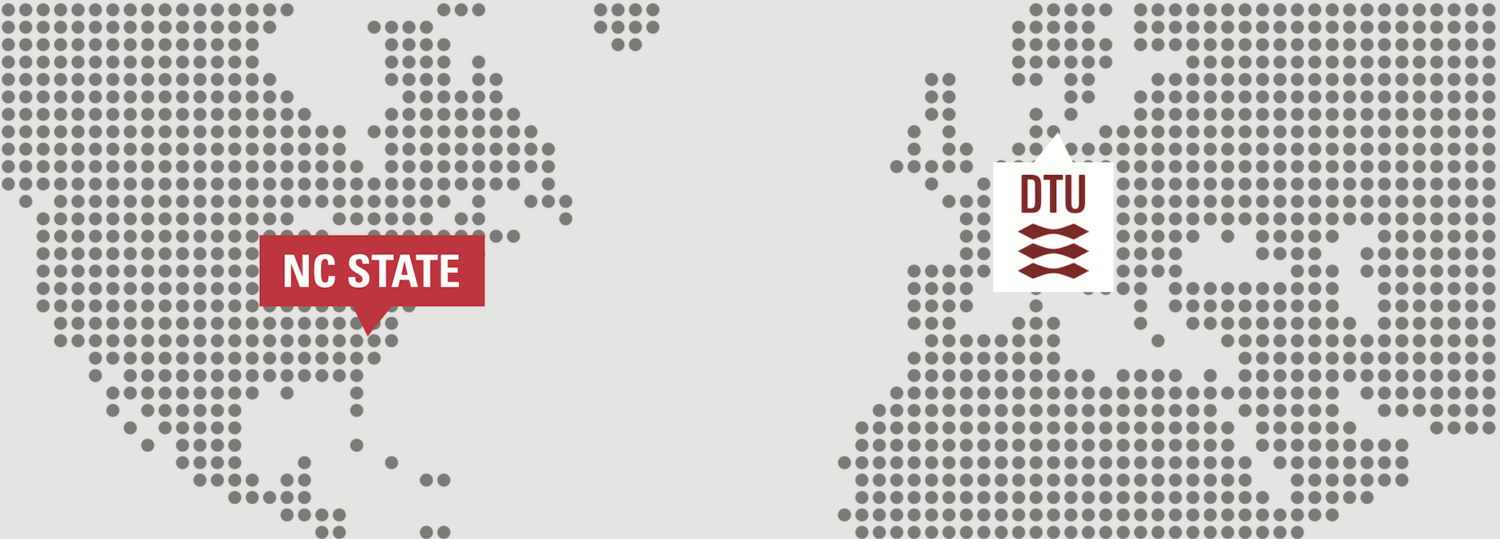
As we reflect on the AIM-Bio program midway through its fifth year, the success of AIM-Bio is a result of a strong partnership between Denmark Technical University (DTU) and NC State University in the areas of research and lifelong learning. This partnership is enhanced by the active international exchange program and the annual symposium. The partnership between the two institutions is due to mutual understanding of the program goals and a strong dedication to collaboration and quality results.
Highlights of the research outcomes include 42 exchange visits, 12 joint publications, nine follow-on funding grants and a high level of engagement with industry and conference participation. A bibliometric analysis of a subset of AIM-Bio publications shows that research productivity is growing, articles are being published in high-impact journals, and publications are beginning to influence a growing number of researchers.
Similarly, highlights of the lifelong learning programs through Q1’2024 include delivery of 29 in-person courses, in-person training of 278 people, online training of 116 people and a 92% overall level of satisfaction. The lifelong learning initiative of AIM-Bio not only addresses the growing demand for skilled professionals in biomanufacturing, but also strengthens DTU and NC State’s positions as hubs for cutting-edge biotech education. By fostering continuous learning, the programs not only support individual career advancement but also contribute to the overall competitiveness and innovation of the biotech industry.
The enhanced knowledge, skills and social capital among AIM-Bio graduates and established employees are also having a transformative impact on society. AIM-Bio funding has supported the research of 20 doctoral students and 10 master’s students. Twenty-four of these students have participated in the AIM-Bio exchange program. Based on feedback from post-exchange surveys, 70% or more of the students reported their exchange visit had a “High” or “Very High” impact on their training and development. Specifically, students reported impacts from the exchange on advancing their research agenda, developing technical and professional skills, strengthening their professional network, and increasing their understanding of cultural differences in their field.
The short-term benefits of the AIM-Bio program are clear, and the AIM-Bio leaders anticipate that the societal impact of AIM-Bio will continue to deliver in the future.
